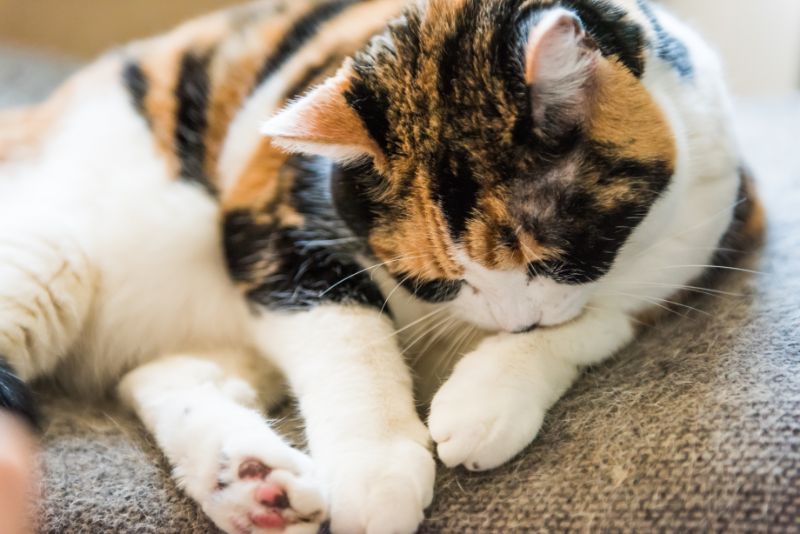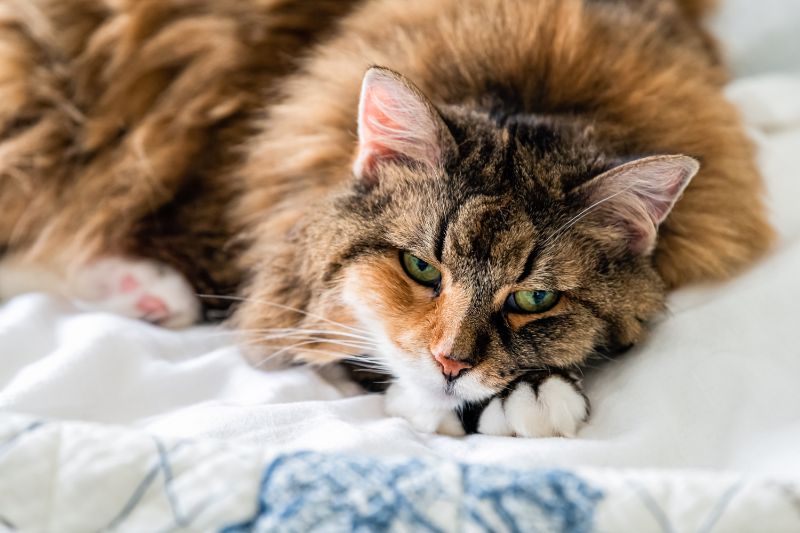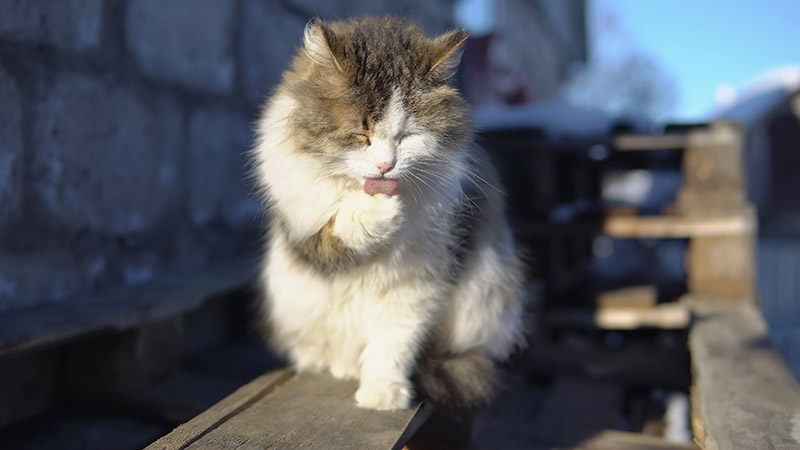Blog
Cats and Hairballs

Did you know that cats spend 15 to 50 percent of their day grooming themselves? With that amount of grooming, hairballs will form.
Depending on your cat’s breed and grooming habits, you might find hairballs appearing quite regularly, leading you to wonder if this frequency is typical for them.
Let’s take a closer look at hairballs. What are they? What causes them? How do you prevent them?
What Are Hairballs?
Hairballs form when cats groom themselves. Their tongues, covered in tiny, backward-facing barbs, act like a brush. These barbs catch loose fur, which the cat then swallows. While their digestive system can usually process most of this hair, some of it may remain in the stomach. Because cats can’t properly digest hair, it can clump together, forming what we know as a hairball. Eventually, the cat will expel this clump by throwing it up.
Continue…How to Tell If Your Cat Is Sick

Despite being one of America’s most beloved pets, cats receive less veterinary care. This can be explained by the general fear and loathing of travel kennels and car trips. However, perhaps more to the point is the fact that cats appear to be fine even when they’re not. Cats mask symptoms, something not hard to do considering the signs that a cat is sick can be extremely subtle. As a result, cat owners should know what to look for and when to seek help.
Continue…A Kitty Conundrum: Feline Hyperthyroidism

The endocrine system is an often overlooked, but very important, organ system in our bodies. Responsible for all things hormone, havoc can ensue when this organ system isn’t working properly.
In cats, the most common endocrine disease is dysfunction of the thyroid gland. Feline hyperthyroidism refers to an overactive thyroid gland, a problem that we diagnose and treat often at Ten West Bird and Animal Hospital.
Continue…